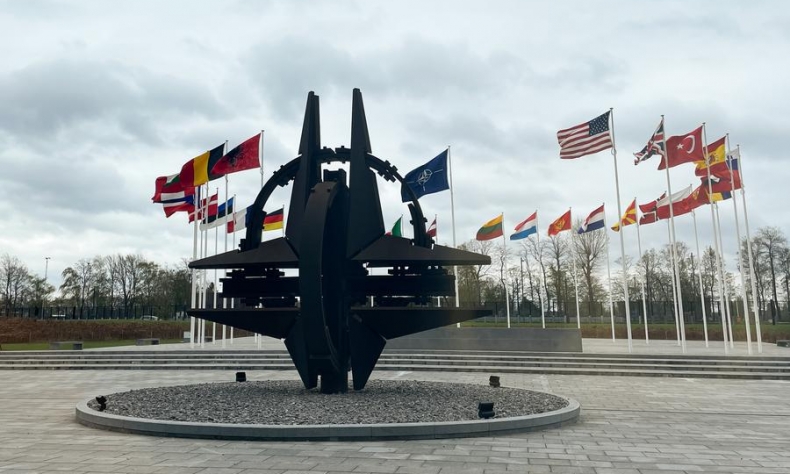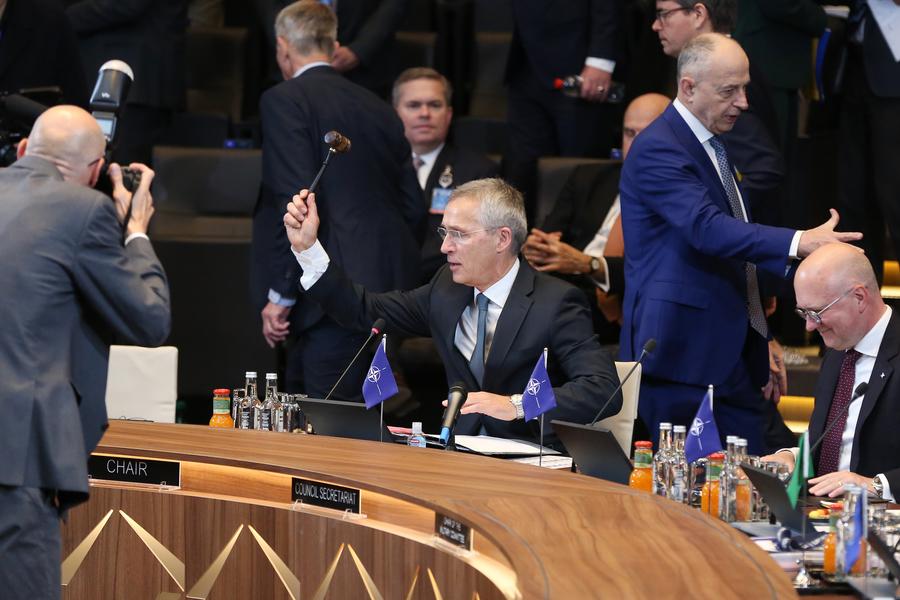A Sobering Reminder

The attempts to enlarge NATO or extend its reach into the Asia-Pacific will only make the region less secure.
The three-day North Atlantic Treaty Organization (NATO) summit concluded on July 11 in Washington D.C., the U.S. During the summit, members stated that they would provide more military assistance to Ukraine and support its joining of NATO. It also hyped up tensions in the Asia-Pacific region by continually referring to China as a “challenge.”
The NATO summit, which fuels the flames in Europe and interferes in the Asia-Pacific, once again exposes the alliance’s nature of inciting confrontations and even wars.
The alliance’s gathering continued to tout outdated Cold War mentality and camp confrontation, deliberately provoking opposition and attempting to disrupt the peace and stability of the Asia-Pacific region. This practice clearly goes against the global trend of peaceful development, win-win cooperation and multilateralism.
The Washington summit, on the occasion of NATO’s 75th anniversary, is a stark reminder to the world. As was the case at last year’s NATO summit in Vilnius, Lithuania and the Madrid summit in Spain the year before, Ukraine was at the top of the agenda. Debates between the radical and cautious groups within NATO over how much military aid should be offered to Ukraine by member states, the prospect of Ukraine’s accession to the alliance and whether countries should lift their limitations on the Ukrainian use of foreign-aided weapons, have been fierce.
While the general public of NATO member states has regarded these issues as important, they are likely to have seemed largely irrelevant to their daily lives. However, at this year’s summit, the allies have agreed to advance NATO’s modernized command structure and put into practice the new generation of defense plans that were agreed to at last year’s summit.
These new defense plans are likely to have a larger impact on the public as they involve more food, water, energy, medicine and other basic supplies being stored to higher standards, more civil defense fortifications, more extensive emergency conscription programs, and wartime evacuation and transportation infrastructure in border areas and throughout their countries.

Some Western commentators even called the plans “the first comprehensive defense blueprint developed by the alliance since the end of the Cold War.” This was certainly a mockery of NATO as a military alliance and collective defense organization, but for the world as a whole, it would be better for the alliance to remain an outdated organization.
Ahead of this year’s summit, military and diplomatic officials from Sweden, Britain, Germany and the Baltic states said on various occasions that all citizens should be mentally prepared for a possible regional conflict and that Europe could see its highest level of military mobilization since World War II. Rob Bauer, Chair of the NATO Military Committee, called for a “whole-of-society approach” to “strengthen” the collective defense and at the same time support Ukraine with defense equipment. Public unease about the prospects for peace in Europe has intensified after receiving these warnings.
The summit shows that the risk of a return to the Cold War has become more real. More worryingly, this risk is not only confined to war-torn Europe. Although Australian Prime Minister Anthony Albanese was absent, he sent Australian Minister for Defense and Deputy Prime Minister Richard Marles to the summit. Japanese Prime Minister Fumio Kishida, the Republic of Korea President Yoon Suk-yeol and New Zealand Prime Minister Christopher Luxon were also present—the third consecutive attendance by the leaders of NATO’s four Asia-Pacific partners at the summit.
In recent years, the U.S. has relentlessly pursued NATO’s reach into Asia or the Asia-Pacific. Its attempts include updating the Treaty of Mutual Cooperation and Security signed between the U.S. and Japan in 1960; planning to establish a joint operations command in Japan; conducting joint military exercises between the U.S., the Philippines, Australia and Japan, and holding a joint meeting of the four defense ministers; and promoting the signing of a reciprocal access agreement between Japan and the Philippines that will allow armed forces to train and conduct military exercises in each other’s countries.
The attempts to enlarge NATO or extend its reach into the Asia-Pacific will only make the region less secure.
The author is director of Foreign Policy Analysis at the Institute of World Economics and Politics under the Chinese Academy of Social Sciences.
 Facebook
Facebook
 Twitter
Twitter
 Linkedin
Linkedin
 Google +
Google +










